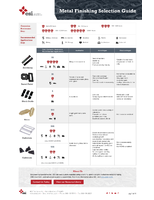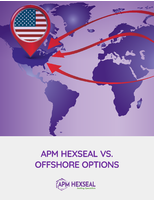Tox Pressotechnik Realizes 20% Savings on Retrofit Job

Date: August 29, 2007
Product Development Manager, Mike Mishler with TOX Pressotechnik of Warrenville, IL recently claimed a 20% savings on materials plus substantial inside machine shop time on a hydraulic press retrofit job. Mishler credits this savings achievement to the use of the MISUMI component catalogs and online ordering system. Mishler states, "This was just the latest example of how much we've benefited from the relationship we have with MISUMI."
As Mishler explained, TOX is a major international supplier of hydraulic presses, work holding and fastening devices for various custom manufacturing operations. Frequently TOX builds custom, unique and application-specific equipment at its Warrenville plant, near Chicago. In the past, drawings would be made using the company's Pro/E Wildfire software then parts would be sourced from standard catalog houses, local machine shops or made inside the TOX machine shop. Often, there would be considerable time spent multi-sourcing routine parts or making simple components that required some minor modifications from a standard catalog item. "To remain competitive, we knew we needed a better system," stated Mishler, "I knew of MISUMI as a small supplier of a few components, from another job we'd done." However, perceptions changed when the local sales rep, Mike Ricketts, brought in the MISUMI catalogs of automation and press/die components and Mishler saw the variety of components and configurations available. As Mishler noted "It was then that we realized it was necessary to completely reevaluate this supplier and we looked further into the MISUMI catalogs and web tools."
As product development manager, Mishler is responsible with the task of identifying and managing all constituent elements of a project. This starts with the customer interface and moves to the design concept, creating initial drawings, estimating process, sourcing of components, customer approval supervision, integration of design/machine shop departments as well as the delivery of all components, final assembly, test, delivery and start-up. This was the case with the machine shown here. The hydraulic press functions as a 50-ton staking machine. Staking is a process of deforming material, either by rolling a flange or compressing it into an undercut, to secure one component to another. TOX pioneered this concept and the "TOX joint" is a common expression today in most metalforming and component assembly markets. All the mechanical components on this press between the top and bottom plates, except the small sensor brackets, were sourced from MISUMI. The staking tools on top are proprietary, but to make these parts TOX engineers simply modified an existing MISUMI component. Additionally, TOX engineers sourced all the linear shafts, linear shaft collars, linear shaft supports, linear bushings, blocks, plates, locating bushings, stoppers, screws and bolts from MISUMI. For demanding designs that might require extra machining TOX engineers will purchase a configured or standard component from MISUMI and further modify the component in the TOX shop to serve a particular purpose. "We have such a faith in the consistency and quality of a MISUMI component that we have no problem further machining a configured or standard MISUMI component to create a custom component for a specific application," noted Mishler. TOX will then assign their own part number to the newly created component, for their customer's reference.
Mishler explained that, on this hydraulic press retrofit the project management was improved in all facets which allowed for the 20% savings in materials and inside machine shop time. "With MISUMI I don't have to worry as I know the part will be on-time and will arrive with exceptional quality," said Mishler, "Just look at MISUMI linear shaft, it arrives with a mirrored finish every time, the surface quality is simply outstanding." In addition, when TOX uses one supplier this saves on the overall component costs, while conserving time in the engineering, part sourcing, in-house machining and multi-vendor paperwork areas. This is why whenever possible Mishler looks for single-source providers that can deliver quality parts at a good price and on-time. "Products we got from some of the other suppliers were often inconsistent from part to part and that's never the case with MISUMI, even on the configured components," commented Mishler.
Furthermore Mishler said that the tolerance, finish and material quality on MISUMI components matches what is stated in the catalog. Mishler explained, "We reference the MISUMI paper catalogs, nearly 100% of the time, for parts we need because the components are easy to source due to the amount of detail in the catalogs, as well as the CAD configurator tool at the web site." The MISUMI CAD configurator allows engineers to configure a part, download the native CAD file, modify the file and then insert the file into the CAD assembly. As Mishler noted this gives TOX engineers and machinists valuable time to work on the special components and structures needed for the machine projects in-house.
On the subject of cooperative designs, Mike comments, "It's a far more effective, efficient and, yes, profitable use of our time." Mishler is referring to the TOX practice of using multiple MISUMI standard or configured parts to create a unique component for a particular project. "That's probably the best scenario, when we combine our expertise with that of a competent vendor and everyone wins," said Mishler. He also noted that the MISUMI catalogs include all the engineering detail, pricing and delivery information to facilitate TOX engineers going directly from their drawings to the order process in a trackable, time-compression mode. Thus, project costs are substantially reduced, while turnaround time on even exotic, complex designs is also most efficient. Mishler calls this protocol one of his "secrets to success" as a project development manager.
Mishler further noted "If you have some design experience you can quickly realize the advantages of MISUMI just by looking at the catalog because of the amount of configurable components available and they can respond to our one-of-a-kind requirements very quickly." He also made note of the fact that TOX has subsidiaries and joint ventures in many countries around the world and MISUMI, as an international supplier, is able respond in those instances where local support is needed on multiple continents.
About TOX Pressotechnik
TOX Pressotechnik was founded in 1978 in Weingarten, Germany. It has subsidiaries in the USA, China, Korea, Great Britain, Italy, Finland, Austria, Switzerland, France and Japan. Plus, it has joint ventures in another 22 industrial nations.
About MISUMI USA, Inc.
Located in Schaumburg, Illinois, MISUMI USA, Inc. was established in 1988 as a subsidiary of Japan-based MISUMI Corporation. MISUMI USA, Inc. is a leading supplier of configurable and fixed components for factory automation. In addition, MISUMI USA, Inc. offers a range of press and die/mold components, cutting tools and gauges.
Client contact:
Dwayne Roark
Senior Marketing Manager
847-843-9105, x251
Agency contact
Tim Daro
Bernard & Company
847-934-4500
For more information, please contact:
Dwayne J. Roark
Senior Marketing Manager
MISUMI USA, Inc.
1105 Remington Road
Schaumburg. IL 60173
(800) 681-7475
Web: www.misumiusa.com




